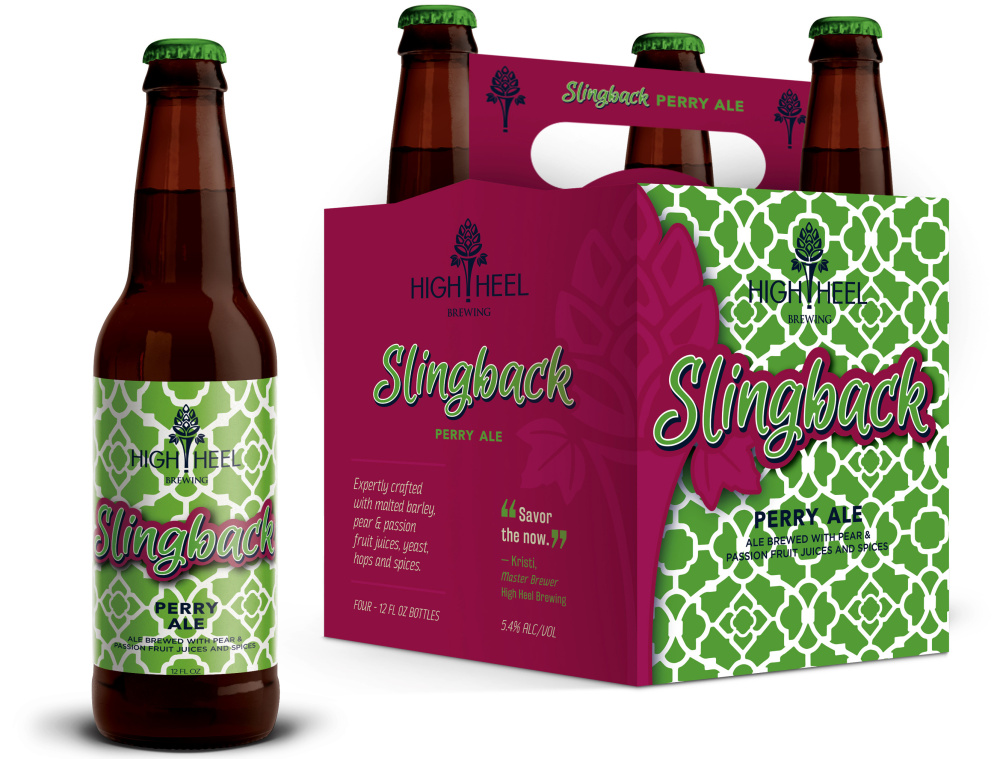Ladies, as everyone knows, are dainty and fragile, and prefer the world to be awash in pastels. Or at least, that’s the philosophy behind the old marketing mantra for making products attractive to women:
“Shrink it and pink it.”
It’s hard to imagine this phrase being uttered in a boardroom in this era. And yet, every so often still, a new product emerges doused in shades of magenta and labeled “for her”: Dell’s cutesy laptop Della, which promised nifty ways to search for recipes and count calories. The Tampa Bay Buccaneers’ website for women who like football, filled with game day style tips, manicure ideas, and, of course, more recipes. Bic’s pink and purple pens “for her.” (“I know you’re thinking, ‘It’s about damn time!’ “Ellen DeGeneres snarked. “Can you believe this? We’ve been using man pens all this time!”)
And now, soon to make its way onto grocery store shelves in Florida: beer, made especially for women.
It’s infused with chamomile, elderflower and passion fruit juice. The packaging resembles a knockoff Lily Pulitzer print. The label is adorned with hops poking out of a stiletto. The brand: High Heel Brewing.
The reaction? “What a slap in the face to all women brewers and drinkers,” a commenter on the beer’s Facebook page said.
“What does gender have to do with beer?” wrote another.
You can’t begrudge any manufacturer for wanting to tap into a burgeoning market, and for the beer industry, there is certainly room to grow: Women make up slightly more than half the U.S. population but consume only 32 percent of U.S.-made craft beer.
But is wrapping it in pink really going to do the trick?
“We didn’t put pink on the label for women,” said Kristi McGuire, the brewmaster and creator of High Heel. “We put on a dark raspberry color because it popped on the shelf.”
After her beer was unveiled in May, McGuire was shocked by the backlash. She sat up at night scrolling through the comments and mulling her 20 years in the male-dominated brewing community. She says she believed she could make a beer everyone would like, while using the name and packaging to celebrate that it was brewed by a woman.
But the “for her” marketing approach has lost its appeal.
“Pink is not a strategy, unless you’re raising money for breast cancer research,” said Bridget Brennan, the author of “Why She Buys.” “In 2016, marketing to women is all about being inclusive. That doesn’t mean excluding men; it means excluding stereotypes.”
It’s not that women don’t want products made with them in mind. “Marketing to Women” author Marti Barletta points to other examples in the business of alcohol: Skinnygirl Cocktails and Vixen Vodka. Their logos feature spiky pumps and female silhouettes to indicate their target market – but without explicitly declaring it, as High Heel Brewing did.
“Anything that says ‘you women’ is going to get a backlash,” Barletta said, whereas an approach that comes from the angle of “we women” just might get a listen.
Women have been the primary targets of advertising since the early days – notably for food products. But that was because marketers saw them more as the domestic providers than the ultimate consumer.
Those early ads didn’t quite recognize women as full people, said Katherine Parkin, an associate professor of history at Monmouth University. “They impressed upon women that if they serve Grape Nuts, their husband will be a successful businessman or their children will be popular. All these kinds of threats and promises go with their messages.”
In the early 1900s, when women started to lobby for a vote and roles outside of the home, advertisers began to recognize women’s complexity – sort of. Royal Baking Powder created an ad that showed women marching for their rights. But the “right” they are marching for is for “pure” food, for their families.
“They wanted to acknowledge women and their new roles,” said Jennifer Scanlon, a professor of gender and women’s studies at Bowdoin College. “But of course, if all women started working, who is going to stay home and buy Royal Baking Powder?”
Send questions/comments to the editors.




Success. Please wait for the page to reload. If the page does not reload within 5 seconds, please refresh the page.
Enter your email and password to access comments.
Hi, to comment on stories you must . This profile is in addition to your subscription and website login.
Already have a commenting profile? .
Invalid username/password.
Please check your email to confirm and complete your registration.
Only subscribers are eligible to post comments. Please subscribe or login first for digital access. Here’s why.
Use the form below to reset your password. When you've submitted your account email, we will send an email with a reset code.